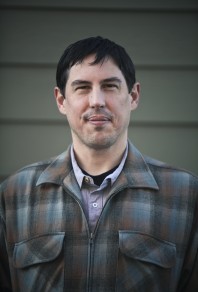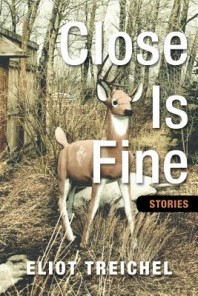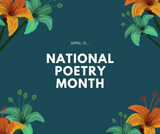 Maybe it begins here—along the Suamico River in northeastern Wisconsin. Uncle Dale owned about 60 acres of low pastureland along the Suamico, and my grandfather farmed part of it, selling his produce out of the breezeway of his home, though he also sometimes sold his dill and asparagus directly to the local IGA. When I went to visit my grandparents in the summers, my grandpa would put me to work for a little bit and then take me out fishing. Now all that land has been turned into subdivisions that have streets with names like River Meadow Drive and Kingfisher Lane.
Maybe it begins here—along the Suamico River in northeastern Wisconsin. Uncle Dale owned about 60 acres of low pastureland along the Suamico, and my grandfather farmed part of it, selling his produce out of the breezeway of his home, though he also sometimes sold his dill and asparagus directly to the local IGA. When I went to visit my grandparents in the summers, my grandpa would put me to work for a little bit and then take me out fishing. Now all that land has been turned into subdivisions that have streets with names like River Meadow Drive and Kingfisher Lane.
This day, my grandpa and I had walked past the boundary of my uncle’s property, past the big weeping willow, further than I’d ever explored before—until we reached a gentle bend in the river. The opposite shore was a high, sheer bank of sand. Grays layered the sky, blocking out any blue. My grandpa and I both had a rod, each with spincast reels. We had a white five-gallon bucket with a custom, padded lid that my grandpa had made—one of his many contraptions—and it served as both a livewell and seat. For bait: yellow Mister Twister curly tails with yellow heads.

“The stories in ‘Close is Fine’ are a rare treat: vivid and voice-driven, sometimes hilarious and often heartbreaking, with surprising perceptions on every page . . . Eliot Treichel’s characters are all complexly flawed and deeply human.” — Scott Nadelson. Click on the jacket above to buy the book from Powell’s.
We hadn’t been fishing for long when my grandpa hooked the fish. With a quick jerk, the tip of his rod bent severely and the filament pulled taut, Z-ing all over the place. I quickly reeled in my own line to get it out of the way. He fought the fish for a bit and then moved a few steps my direction, until he was standing slightly behind me.
“Here,” he said. He was holding out his rod for me. I stared at him, my arms frozen at my sides. “Go ahead,” he said.
I could feel the fish pull deep, flashing one direction and then another. My grandpa made sure I kept the pole angled up, coached me about when to crank the fish in, and when to let it run. Once I’d gotten it to shore, my grandfather kneeled down and netted it, lifting it for me to see—a thirteen-inch smallmouth bass, the largest fish I’d ever caught. Perhaps I am already exaggerating.
That smallmouth, and that simple act of my grandfather—these are only one part of the story. What I’m really trying to get at is what happened afterward, after my parents had come to pick me up, after I’d told them about the fish.
This was later that afternoon, still at my grandparent’s house, and my dad was retelling the tale to someone—to my aunt maybe, or maybe to someone who’d stopped by to get some vegetables from my grandpa. In my dad’s version, things changed. Instead of my grandpa hooking the bass, I had. I’d hooked the fish, and had reeled it in, and had caught it all by myself. Instead of thirteen inches, it was fourteen, fifteen, this big.
As I listened, I became upset. My father wasn’t getting it right. His version wasn’t how it had happened. That he was taking over my story, altering my experience—it angered me in that particular way fathers can anger sons.
But this is also the moment when I first understood that life was actually made up of stories, and that stories were things you constructed, and that the story was the reality, but that it was also not the reality. This moment is the headwaters of my writing life—a life largely made up of rivers.
There was the Fox, which was just a short bike ride from my house. While the Suamico was narrow and meandering, the Fox was big and wide—a river of dams and locks and paper mills, of carp and catfish and sheepshead, fish you were advised against eating because of how toxic the water was.
There was the Arkansas River in Colorado, a river of snow-capped peaks and crashing whitewater, a river my dad and I went rafting on one summer vacation. This was my introduction to river guides and their penchant for storytelling. They seemed to have a game among themselves, a game to see how wild of a story they could get the tourists to believe, a game I wanted to play.
And then there was the Wolf, the river that became the inspiration for my story collection, Close Is Fine. The Wolf, which cuts across northern Wisconsin and drains into Green Bay, is where I became a river guide myself. Where I learned that in addition to being an instructor and someone who had to keep people safe, you were also primarily an entertainer—that you were filling the role of mythmaker for them.
Only one time in my life have I lived in a place vacant of a flowing river. This was in Arizona, and there was a certain misery to those years that I attribute to this lack of water. Now it’s the Willamette I live along. Now it’s the Willamette’s rhythms influencing me. And since it’s late fall, and it’s been raining pretty good for days on end, the river is fast and full, and—to borrow from Kesey’s description of his fictional Wakonda Auga River in Sometimes A Great Notion—is “like an aluminum rainbow, like a slice of alloy moon.”
Knowing when to change the story and when not to, knowing when the change is designed to get at some deeper truth and when it’s designed to actually avoid confronting the truth—knowing how to do this, how to see this—these are not just the concerns of the writer. These are the concerns of all of us, I think. This is really what all of us are dealing with all day long.
Eliot Treichel is a native of Wisconsin who now lives in Eugene. He holds an MFA from Bennington College and currently teaches writing at Lane Community College. His short stories have appeared in Narrative, Beloit Fiction Journal, CutBank, Passages North, Southern Indiana Review and other literary journals. He has also written for Canoe & Kayak, Paddler, and Eugene Magazine. In 2012, he was awarded a residency fellowship at Playa, as well as a Career Development Grant from the Oregon Arts Commission. Close Is Fine (Ooligan Press) is his first book.
Join him tomorrow, November 28, at 7 pm at St. Johns Booksellers in Portland, or January 7 at Powell’s Books on Hawthorne. He’ll read in Eugene February 19 as part of the Windfall Reading Series.


